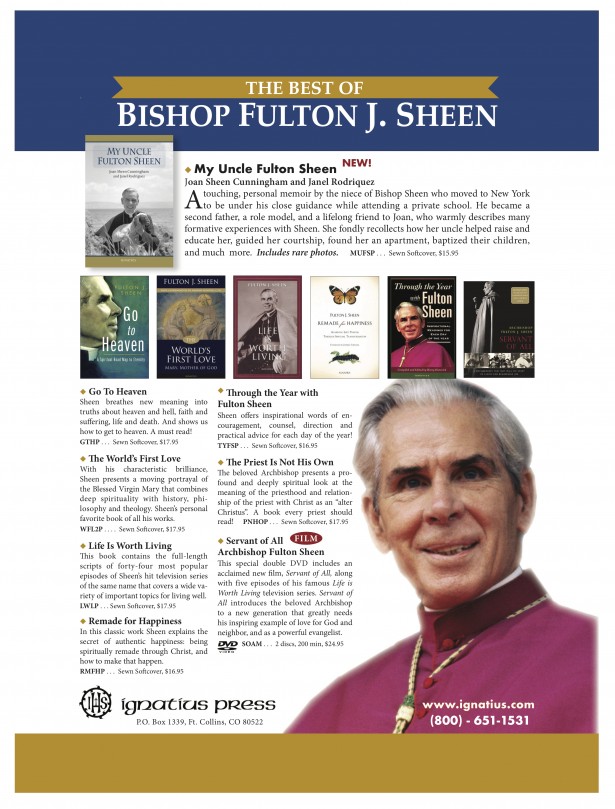Inspired Through Art: Death and the Miser by Hieronymus Bosch, c. 1490
The artist Hieronymus Bosch is a mystery of Art History. His role in the Northern Renaissance has made him a curiosity who has been admired, copied, and perhaps disdained as a madman. His paintings are fantastical always and religious usually, but religious in a unique, sometimes troubling and psychologically dark manner. He left no written documents or letters that might explain his ideas about painting, but he is mentioned in the archives of the Illustrious Brotherhood of Our Blessed Lady, a Netherlandish religious confraternity. His father was an artist, as were three of his brothers. He rarely dated his paintings and there has been endless speculation about his work, his life, and the meanings of his paintings. However, his work is full of intense expressions of the urgency of the human condition, of which Death and the Miser is an exceptional example.
While most of Bosch’s famous works include many figures crowded into strange environments, this scene of the miser’s bedroom is focused on one person, the man who has lived a life of greed. He has come to the last moments of his life; the final battle for his soul is happening. We are given an opportunity to watch his life unfold in a simultaneous narrative.
In the foreground, we see him in the fullness of life depositing money into a lockable chest, the keys for which are hanging from his waist. Also hanging from his waist and passing through his hand is a rosary. This indicates a moral conflict: praying and hoarding wealth do not go hand in hand except in the disordered mind of the miser. The room includes other attributes of worldly prestige and gain such as armor and documents sealed in wax (likely contracts or loan documents). Remember that usury was, and is, the sin of lending money at exorbitant rates of interest, a likely source of income for this miser. In the chest a demon holds open the bag for the coins. Indeed, demons are everywhere in the room, lurking around and poking their heads from behind a curtain, from under the chest and from over the canopy. Above the canopy is a vaulted passageway and the bed seems to be receding into a void of darkness. Death itself, with the face of a skull, enters through the door with an arrow. In the bed the miser, emaciated with a sickly color, is at the end. It is time to for him to decide: repentance or damnation. Salvation hangs in the balance! Which will it be?
AD: The Best of Bishop Fulton Sheen Books & DVDs
To order any of these Bishop Fulton Sheen books or dvds, call 800-651-1531 or visit www.ignatius.com.

This is a paid advertisement and should not be viewed as an endorsement by the publisher.
AD: Free Downloadable Bi-lingual Discipleship Quad Kits
To learn more about and to download the free Discipleship Quad Kit in English click here, and in Spanish click here. Or call 740-283-6315.

The Spiritual Life: Fasting – My Personal Experience
In December of 2009, I was hospitalized for four days in two different hospitals with a blood platelet crisis. Platelets cause your blood to clot when necessary and I didn’t have enough of them (ITP). I had been fighting 3 separate occurrences of cancer since 2003, and while the cancer was no longer present, the treatments (including two stem cell transplants) had been so brutal that I was constantly in the hospital for something.
This particular hospitalization occurred the week before Christmas and came on the heels of a deep inner darkness, a time of great difficulty both spiritually and emotionally. However strange as it might sound from the outside, I found this stint in the hospital to be a great blessing. Having spent many long periods of time in hospitals, I am at home in them. This four-day period became a sort of retreat for me where the darkness lifted and I felt renewed in body, mind, and spirit.
Just a couple days before Christmas, I was released from the University of Chicago Medical Center. My wife drove me back to our home in South Bend in the afternoon. That evening I needed to go to the drug store to get the five prescriptions that awaited me. I was feeling well enough to drive and, frankly, I wanted to experience some autonomy and independence so despite my weakened condition, I decided to go and get them myself.
While I was waiting in line, I noticed a short little Christian book on fasting which seemed like it was jumping out from the stand in the waiting area. (Yes, in Indiana you can still find Christian books in drug stores.) If books could talk, this book was shouting at me! As I browsed through it, I saw that it laid out biblical reasons for fasting and included testimonies about how fruitful the practice of fasting has been in the life of this pastor-author and his congregation. Longing desperately for more fruit in my own life, I purchased it and spent most of the night reading it. The next day, I drove to a local convent’s Eucharistic Adoration chapel and finished reading it, using the Scripture citations in the book to look up and read all the passages directly myself. As I studied them, I could feel my heart burning.
Now it’s not like I’ve never fasted. Fasting was a part of my “re-version” twenty years previous as a young college graduate. But I was a different person then, much more youthful, naïve, and prone to excessive enthusiasm. As my Christian conversion deepened and moved from a lot of emotion toward a more lasting and quiet commitment, I encountered a Catholic Church which seemed rather unenthusiastic about fasting. Except when I was around people who had gone on pilgrimages to Medjugorje, whenever the topic came up, the topic of fasting was usually met with so many warnings and calls for prudence, moderation, and caution that it seemed like fasting was something the Church actually wanted to discourage. My impression was that in the eyes of most Catholics, fasting was really something only for zealots and extremists. To even bring up the topic made people look at you funny. Well, I didn’t want to be a zealot or an extremist, so I avoided fasting altogether, except during Lent when it was “safe” or perhaps secretly for special occasions. I pursued other “safer” routes towards closeness with Christ.
This little book from the drug store rekindled some long smoldering embers. It pointed me towards the biblical basis for fasting. I was familiar with many of the biblical stories, but it was like the scales were falling off my eyes and I began to notice things that I have never noticed. During the ensuing month, I spent many hours in that convent chapel reading and praying about fasting, as I sat in the presence Jesus in the Blessed Sacrament.
Then a couple weeks later, I had a conversation with a devout Catholic doctor friend about the spiritual practice of fasting. I wanted to make sure that it would not hurt my health to fast as I had made a commitment to my wife that I would always do what the doctors recommended. (This promise was to alleviate her stress about her husband having cancer.) As anyone with medical issues should do, I asked him if I could fast. He replied that nobody had ever asked him that. He requested that I give him a little time to read and think about it, and I said, “Of course.” Then only a day or two later, he emailed me some material that actually encouraged the practice of fasting from a physiological point of view. I was surprised but excited as I really wanted to begin as soon as possible. This was the green light I needed to overcome my fear of being a zealot and a fool, a great step forward towards the practice of fasting for me.
Editor's Reflections: Leisure – God's Plan for Us
 “Life is what happens when you are making other plans.” How often people have said this with a wry smile as they cope with an untimely interruption to their well-ordered (or not-so-ordered), scheduled events.
“Life is what happens when you are making other plans.” How often people have said this with a wry smile as they cope with an untimely interruption to their well-ordered (or not-so-ordered), scheduled events.
Sacred Signs: The Chalice
 Once, now many years ago, I met the chalice. Of course, I had seen many, but I met one when I was at Beuron, when a friendly monk, who had charge of the sacred vessels, was showing me the treasures of the sacristy.
Once, now many years ago, I met the chalice. Of course, I had seen many, but I met one when I was at Beuron, when a friendly monk, who had charge of the sacred vessels, was showing me the treasures of the sacristy.
The Spiritual Life—A Three-fold Cord is not Quickly Broken: Fasting in the Christian Life
Every Ash Wednesday around the globe—in lavishly tiled basilicas, in wood planked chapels, in modest oratories with dirt floors, and in carpeted and cushioned suburban parishes—Catholics are called by Christ himself to reflect on the three great activities of Christian discipleship:
“When you pray…”
“When you give alms…”
“When you fast…”
For nearly two thousand years, Catholics have read, re-read, and reflected upon these three passages from the sixth chapter of Matthew. When the Ash Wednesday Mass concludes, the following forty days—all of Lent—is observed within this context.
How many Catholics understand that a normal living of the Christian life is to be composed of a healthy dose of all three? Sure, we’re supposed to pray. Everyone believes that. Giving alms (once we get past the archaic word) is also commonly accepted. In the United States and many other countries, giving to charities and doing service work is considered a normal part of our civic life. Nothing too unusual here.
But fasting? Who fasts? And if we do fast, isn’t it just obedience to some minimal Church norms during Lent? But where does Christ or the Church say that fasting is to be done exclusively during penitential seasons such as Lent? Where does Christ say that it should be so rare and so minimal? And where does he say that it is to be exclusively penitential? Nowhere. Yet for some reason these things are precisely what most of us think. Let’s take another look at what he and his disciples actually said and did when it comes to fasting.
When Jesus was preparing for his public ministry, where did he go and what did he do? He went out into the desert and spent forty days praying and fasting. Was Jesus doing penance? Of course not. He never sinned. He was preparing himself spiritually, seeking closeness to his Father in heaven. So, while doing penance is a very good reason for fasting, Jesus gives us other good reasons to fast.
How important was his fasting in this time of preparation? Consider Matthew 4:1-4: when the devil appeared to Jesus to try to thwart his mission, the very first thing he tried to do was to get Jesus to break his fast! Yes, fasting is that powerful and the devil understood this profoundly.
Later in his ministry, when Jesus’ disciples discovered that certain demons could resist their prayers of deliverance, Jesus informed them that some demons can only be cast out by prayer and fasting (cf. Mt 17:21). Obviously there is a power in fasting that goes beyond prayer alone.
To pray is good. To give alms is good. But fasting is the glue. In striving for holiness, prayer lifts us up. Almsgiving coupled with prayer is a selfless movement of love that powers us higher; but fasting allows us to soar to supernatural heights otherwise unimaginable! This is not because we ourselves are in control, but because fasting is an abandonment of control. It is a radical letting go that, coupled with sacramental confession, allows all barriers to our acceptance of God’s love to be broken.
Encountering God in Catechesis
Do You Believe in Me or Not?
When I was a student teacher of Grade 12 Philosophy Religion and Grade 11 World Religions classes, I felt inspired to have the students in both classes do an assignment that would involve them spending time before the Blessed Sacrament. The emphasis for the Philosophy class was more on whether or not they can know God exists, as we were covering St. Thomas Aquinas’ Five Proofs for the Existence of God at the time. For the World Religions class, the emphasis was more on communicating with God, as we were covering meditation. The students then had to journal everyday, indicating what they thought about the exercise and what their experiences were. I emphasized the fact that I wanted them to be honest with me and not just tell me what I wanted to hear.
I have to admit that I was reluctant at first to have the students do this assignment, because I was afraid that if nothing happened it would just confirm their doubts about God’s existence or that he is a personal God who cares about them. I suddenly felt God nudge me with this very gentle rebuke, “Do you really believe I am present in the Eucharist or not?”
AD: Discipleship Quads—Free Downloadable Kit
To find out more about the Discipleship Quads or to download your FREE Starter Kit click here
Children's Catechesis: Honoring the Dignity of Each Child
In my role as a director of religious education, I have listened to catechists make sweeping statements about their students, “These kids today don’t care about anything.” “Most of them don’t even want to be here.” Admittedly, such words are spoken in moments of frustration. I have also heard teachers make sentimental statements about their students, “They’re so sweet and innocent. What could they possibly have to confess?” Both expressions betray a lack of appreciation for the dignity of each child, a dignity which compels us to offer them a complete catechesis about who God is and who they are in relation to him.
It is one thing to assent to the truth that “children have a dignity of their own and that they are important not only for what they will do in the future, but for who they are now,”[1] and another to treat every child with the dignity they deserve. How can catechists honor the dignity of children?
Jesus gives us some clues where he becomes “indignant” when the disciples try to keep the children away and he rebukes them. “He called a child over, placed it in their midst, and said, ‘Amen, I say to you, unless you turn and become like children, you will not enter the kingdom of heaven. Whoever humbles himself like this child is the greatest in the kingdom of heaven. And whoever receives one child such as this in my name receives me. Amen, I say to you whoever does not accept the kingdom of God like a child will not enter it.’ Then he embraced them and blessed them, placing his hands on them.”[2]
Humble Yourself
Jesus offers us a most practical way to grow in the virtue of humility when he admonishes us to turn and become like children. We cannot appreciate the dignity of another person when we are filled with our own ego, need for control, or pride. Children may not always be aware of their littleness, but when they come up against the reality that they need help, they soon become beggars, unashamed to ask for help. They unabashedly and often gratefully receive all as gift. If we are to turn and become like children, we have to give up the illusion that we can live the Christian life by ourselves. No matter our level of experience or education, each of us is radically dependent on God. “Put no trust in . . . mere mortals powerless to save. When they breathe their last, they return to the earth; that day all their planning comes to nothing.”[3] Our very life is dependent on God. If he were to cease loving us, we would cease to exist. Everything we have, including our education and experience, is gift. We have not earned and cannot deserve all we’ve been given. In addition, we are indebted to one another in ways we often take for granted. When we know how dependent we are on God and each other, we are free from the exhausting constraints of self-protection and self-promotion, free to give from the abundance of the gifts we’ve received, and free to follow the leading of the Holy Spirit in the moment.
Humility encourages a stance of awe and wonder in the presence of God’s children who are temporarily placed in our care. An active pursuit of humility safeguards all those in relationship with us too, because it ensures that we act from a place of love and gratitude toward God and others.


